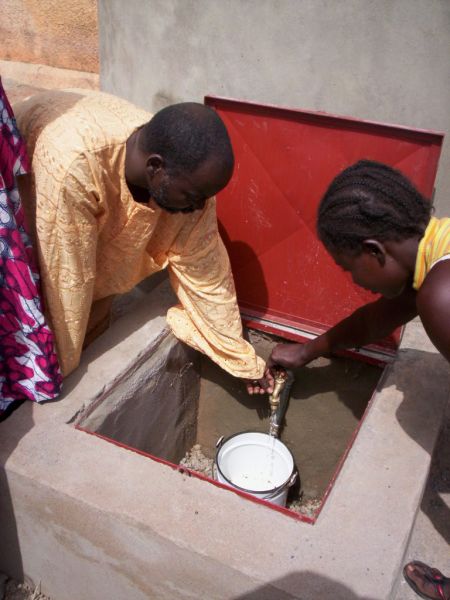Every drop counts
More than 850 million people that is one person in six have no choice but to use potentially harmful sources of water. Considerably more have inadequate access to water, struggling each day to procure sufficient water to meet their basic needs. The consequence of insufficient water is a bleak future for the billions of people locked in a cycle of poverty and disease. Procuring adequate water is a daily time and energy-consuming labour chore, particularly for women and children. The magnitude of this challenge will only increase in the face of population growth, conflict situations, rural to urban migration and the expected impacts of climate change.
Door de redactie
Rainwater harvesting can be an attractive alternative solution to water shortage. By collecting and storing rainwater, the dependence on less reliable water sources, such as open ponds, decreases. Rainwater harvesting has been practiced for centuries and is a simple and low-cost technology. Rainwater is collected from rooftops or surface catchments and is stored in different storage systems. Through its decentralised nature, the collection and storage of rainwater enables people at household and community level to manage their own water. Rainwater harvesting can be more than adequate in meeting a significant proportion of water needs.
The RAIN Foundation has an excellent track record in rainwater harvesting. RAINs particular value is in being able to reach the un-served, in regions where access to piped water is not possible and ground water is inaccessible, inadequate or not drinkable. RAIN projects reach on average 10.000 beneficiaries per year, and the outlook for the coming years is promising.
 Woman of a household with a rainwater harvesting system in Fado, Burkina Faso:
Woman of a household with a rainwater harvesting system in Fado, Burkina Faso:
Now the water is nearby, I can cook meals during the day. Before my family had a rainwater harvesting tank, I spent the whole day collecting water. I feel less tired now."
Ms Laxmi Lama, chair of a rainwater harvesting project in Nepal:
I am very proud to chair the rainwater harvesting project in my village. Everybody is actively involved because water is simply our biggest problem. Hard times should be behind us now. We should have more time now to spend on income-generating activities and looking after our children."
Omar Diallo, village chief in Mali comments:
It is the first time we have participated in a project like this, from the very beginning to the actual construction of the rainwater harvesting tanks. It is fantastic, because whenever promises were made in the past, they were never kept.
11 november 2008
De artikelen van Change Magazine worden door onze eigen redactie vervaardigd. Ze zijn vrij te gebruiken, gaarne met bronvermelding. U kunt zich ook gratis abonneren op Change Magazine. Het volgende nummer ontvangt u dan zonder kosten in de brievenbus.
Domein: Water
 Synergos Communicatie
Synergos Communicatie

